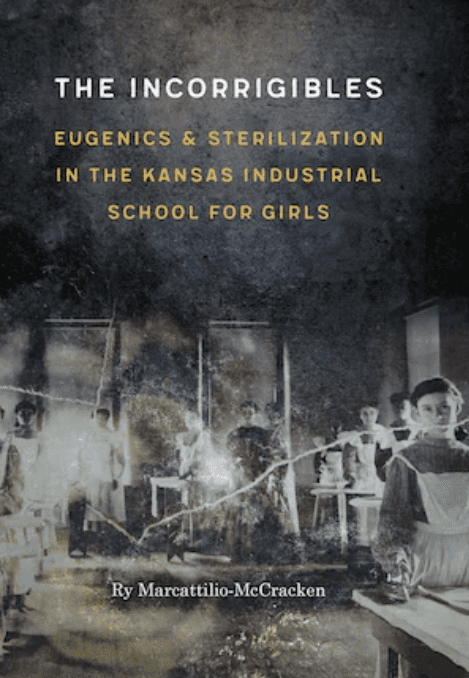
Archive for December 2023
Evidence-based activation work and service individualisation: client and frontline worker experiences with a standardised intervention
Targeting adolescents as agents of change for an entomophageous future
A study on longitudinal relationship between ultrafine dust and the prevalence of depression
The Peer Effect: How Your Peers Shape Who You Are and Who You Will Become

Contextualizing the results of an integrative review on the characteristics of dementia-friendly hospitals: a workshop with professional dementia experts
Transportability Without Positivity: A Synthesis of Statistical and Simulation Modeling
Body mass index mediates the direct association of subjective social status and hypertension in a fulani west African immigrant sample.
Asian American parenting in a racialized world: The role of ideological contexts and intergenerational gaps
The Long-Term Care Crisis—Why Few Can Afford to Grow Old in America
Hidden in Plain Sight: Concealing Enslavement in American Visual Culture

Report of a Special Committee: Political Interference and Academic Freedom in Florida’s Public Higher Education System
Causal associations between COVID-19 and childhood mental disorders
Recreational Cannabis Legalization and Adolescent Sexual Risk Behaviors
A scoping review of research on polyamory and consensual non-monogamy: Implications for a more inclusive family science
International consensus on patient-centred outcomes in eating disorders
Seclusion within the first 24 h following admission into inpatient mental health services and associations with referral pathways, recent service contact and HoNOS ratings
“To Clarify an Everchanging Present” – Hyperchronicity, Anachronism and the relationship between history and social science
Primary–secondary school transition experiences and factors associated with differences in these experiences: Analysis of the longitudinal Growing Up in Scotland dataset
Causality in psychotherapy research: Towards evidential pluralism
Fruit production and exploited labor in northern Italy: Redefining urban responsibility toward the agrarian ground
Identifying Frequently Endorsed Benefits and Barriers to Breast Cancer Screening for African-Born Women in the NYC Metropolitan Area: a Pilot Study
Greater Social Isolation and Social Constraints Prior to Hematopoietic Stem Cell Transplant Are Associated with Greater Anxiety and Depressive Symptoms
ECEC Professionals’ Views on Partnerships with Parents in Multicultural Classrooms in Four European Countries
An Analysis of Research Ethical Practices Information on Universities’ Websites in Developing and Developed Countries
Assessment of quality of life and physical activity in patients with oligoarticular juvenile idiopathic arthritis in remission
What Does the ‘A’ Stand for? Exploring the Process of AMHP ‘Re-Approval’ and Opportunities for Improvement: Themes from a Narrative Literature Review
“Having a guru is like having a licence”: analysing financial relationships between khwaja sira gurus and chelas in Swat, Pakistan
Further education outcomes: 2020 to 2021
An Integrated Cognitive-Motivational Model of Ikigai (Purpose in Life) in the Workplace
Experiences of, and motivations for, disclosing HIV to social and familial networks: considering the social and relational domains of HIV disclosure
The Lived Experience of Motherhood after Prison: A Qualitative Systematic Review
The future of educational research: Observations from the outgoing editors of the British Educational Research Journal
Touch me please—when this enhanced community quarantine is over: sexual intimacies among pre-marital partners during pandemic-induced lockdown
Critical Time Intervention-Peer Support (CTI-PS)
Moving from Offline to Online: How COVID-19 Affected Research in the Social and Behavioral Sciences
Interactive effects of mindfulness and negative urgency on intimate partner aggression perpetration
Reconnecting to the social: Ontological foundations for a repurposed and rescaled SIA
Perception of genital self-image, sexual quality of life and marital adjustment in infertile women
Streamlining the New SNAP Time Limit Exemption for Young People With Experience in Foster Care
Group psychotherapy format guided self‐help for patients with FNSD awaiting inpatient multidisciplinary treatment: A pilot study
The Incorrigibles: Eugenics and Sterilization in the Kansas Industrial School for Girls

Between September 1935 and June 1936, sixty-two girls from a reformatory in north-central Kansas were sterilized in the name of eugenics. None of the girls were habitual criminals, had multiple children, were living on social welfare, or were found to have IQs below seventy; in other words, almost none of them fit the categories usually described by eugenicists as justification for sterilization or covered by Kansas’s eugenic sterilization law. Yet no one at the time—including the reform school superintendent who ordered the procedures performed—had trouble defending the sterilizations as eugenically minded. The general public, however, found the justifications significantly more controversial after the story hit the newspapers.
Some Demographic and Economic Characteristics of Male and Female Same-Sex Couples Differed

Lifetime risk of severe kidney disease in lithium-treated patients: a retrospective study
Conspiracy beliefs and intention to use conventional, complementary and alternative medicines: Two vignette studies
Early origins of health and disease risk: The case for investigating adverse exposures and biological aging in utero, across childhood, and into adolescence
The interactions between patient preferences, expectancies, and stigma contribute to posttraumatic stress disorder treatment outcomes
What did I just say? An individualized behavior skills training for listening behaviors of adult participants in romantic relationships
The degree generation: the making of unequal graduate lives,
Supporting and Sustaining the Current and Future Workforce to Care for People with Serious Illness: Proceedings of a Workshop
